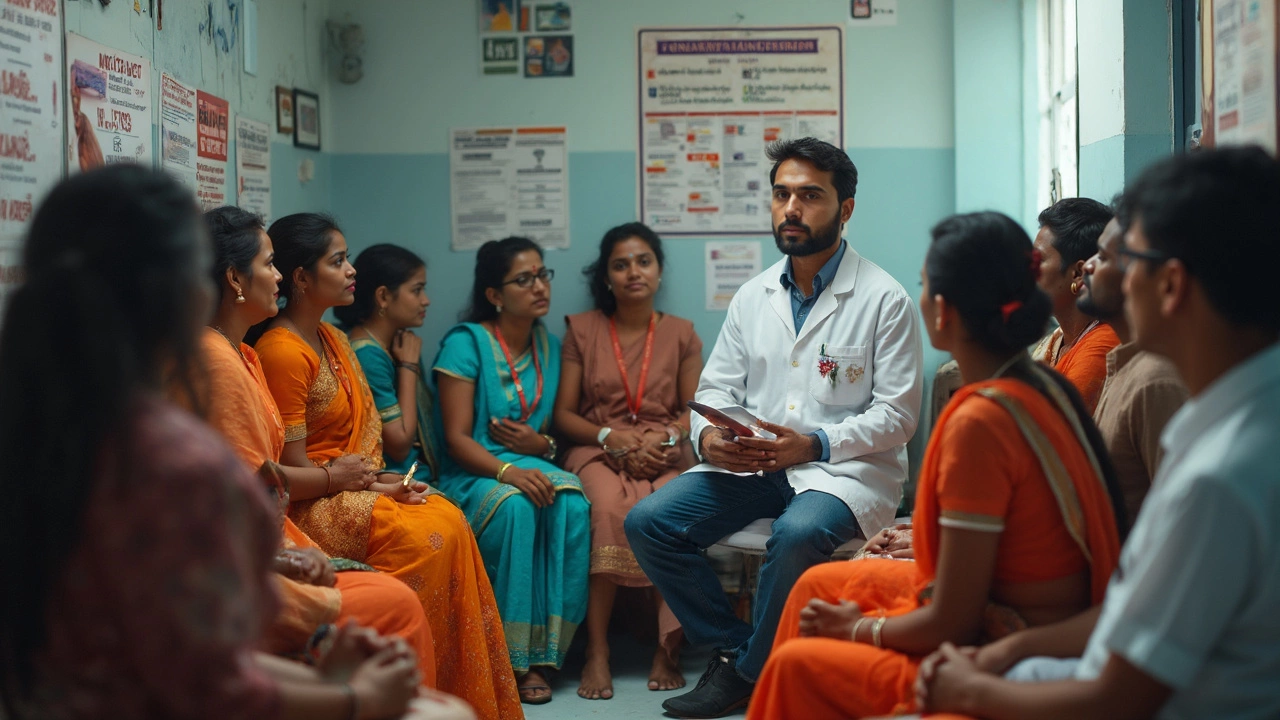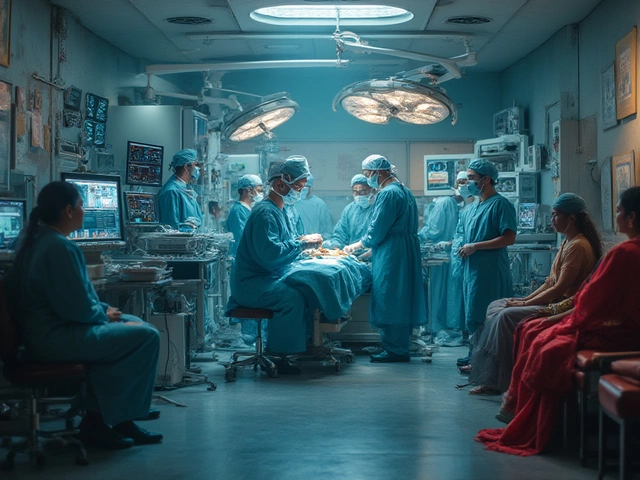Colorectal Cancer: What You Need to Know Right Now
Colorectal cancer starts in the colon or rectum and is one of the most common cancers in India. It often grows slowly, which means early detection can save lives. If you spot any odd changes in your bowel habits or notice blood in the stool, don’t wait—talk to a doctor right away.
Spotting the Warning Signs
Typical symptoms include persistent abdominal pain, a feeling that the bowels aren’t empty after you go, and unexplained weight loss. Blood in the stool can look bright red or be darker, almost black, depending on where the bleed is. Changes that last more than a few weeks should be checked, even if they seem mild.
Family history matters a lot. If a parent or sibling had colorectal cancer, your risk jumps, and doctors usually suggest screening earlier. Lifestyle choices also play a role—high‑fat, low‑fiber diets, smoking, and heavy alcohol use increase the odds.
Screening and Treatment Options in India
The gold standard for screening is a colonoscopy, which lets doctors see the colon lining and remove polyps on the spot. In many Indian cities, you can get a colonoscopy done with sedation for a reasonable fee. If a colonoscopy isn’t possible, stool‑based tests like FIT (fecal immunochemical test) are good alternatives.
When cancer is found, treatment depends on the stage. Early‑stage tumors often need surgery alone, while later stages combine surgery with chemotherapy, radiation, or targeted drugs. Indian hospitals now offer minimally invasive laparoscopic surgery, which means quicker recovery and less scarring.
Recovery isn’t just about the operation. Keeping a balanced diet rich in fruits, veggies, and whole grains supports gut health and can reduce recurrence risk. Regular exercise—like a brisk walk for 30 minutes a day—helps maintain a healthy weight and keeps the digestive system moving.
Don’t forget follow‑up appointments. After treatment, doctors usually schedule colonoscopies every 1‑3 years to catch any new growth early. Staying on top of these check‑ups is one of the smartest moves you can make.
Many myths float around—like the idea that only older people get colorectal cancer. In reality, cases are rising in younger adults, especially those with poor diets. If you’re in your 30s or 40s and have risk factors, ask your doctor about early screening.
Bottom line: knowing the signs, getting screened on schedule, and following up after treatment are the three pillars of beating colorectal cancer. Take charge of your health today, and encourage friends and family to do the same.

Deadliest Cancers: The Top Three You Need to Know About
This article breaks down the three deadliest cancers, spotlighting how they kill, why they're so hard to treat, and what warning signs to watch for. You'll learn why certain cancers are more dangerous than others and what the survival rates look like these days. Get tips on early detection, treatment options, and simple changes that can reduce your risk. It's real talk about cancer—straight to the point, easy to understand, and focused on the facts that matter.

New Drug Revolutionizing Type 2 Diabetes Treatment
Feb, 20 2025

Can the Body Fully Heal After Chemotherapy?
Dec, 23 2024

Ayurveda's Take on Foods You Shouldn't Combine
Feb, 8 2025

